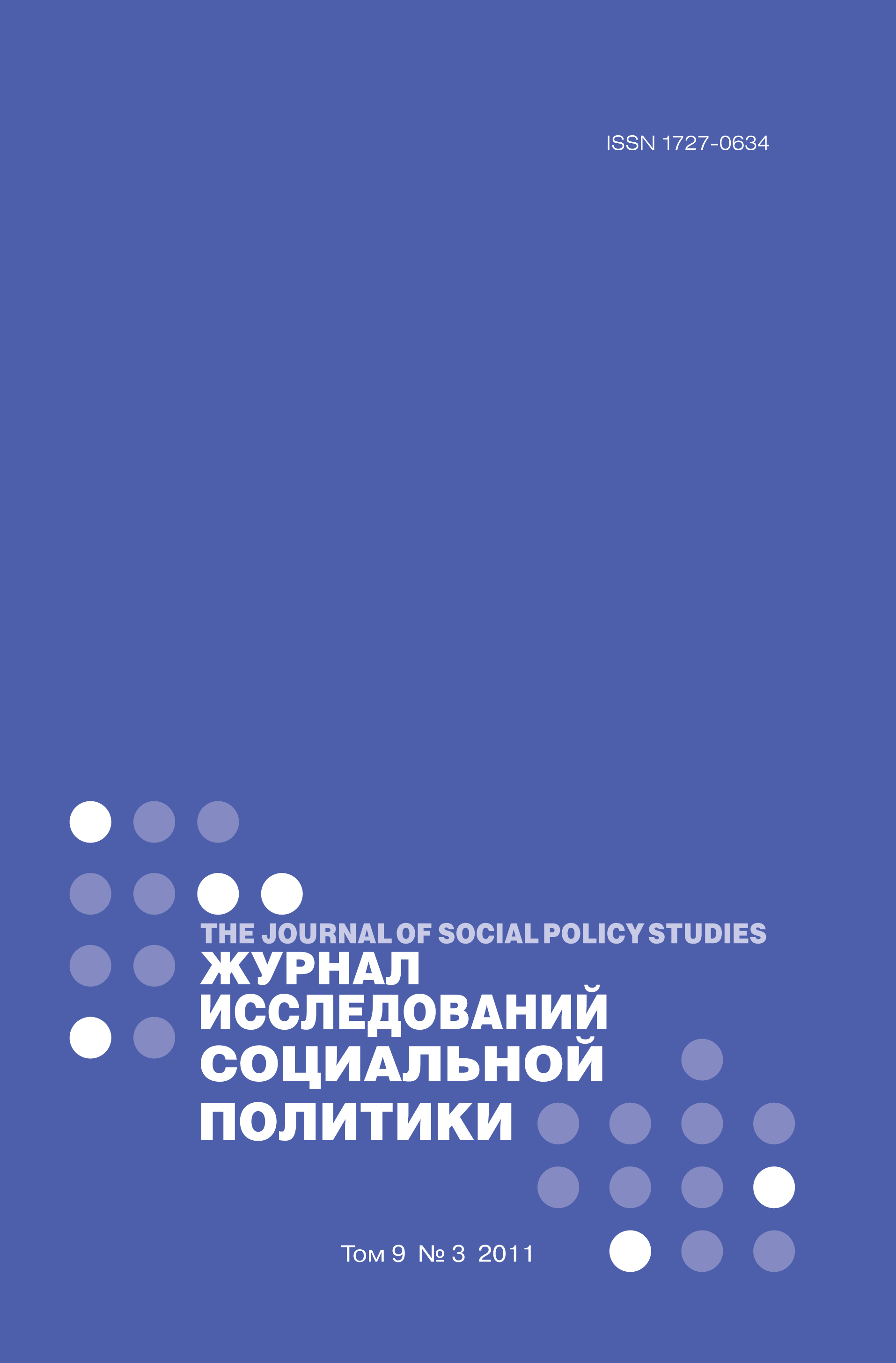Volunteers of a charity organization in the state run institutions for severely disabled people: the constructs of volunteerism and professionalism
Abstract
This article looks at volunteers working on the initiative and with the support of charity organisations within specialist institutions for people with disabilities. The volunteers are considered as a professional group possessing specific skills, knowledge, experience, ideological perspectives and everyday behaviours. The motivations behind individuals’ choices to volunteer are explored, including religious belief, career prospects and the widening of social networks, as well as altruistic or humanitarian considerations. From the perspective of disability as a social construction, the author looks at the policies charities pursue in seeking to influence dominant ideology towards, and treatment of, people with severe disabilities in the Russian welfare system. The charitable organisations studied in the research are seen to contribute to how voluntary and social work is understood in contemporary Russian society.
Based on a range of methods including ethnographic fieldwork, document analysis, analysis of volunteers’ blogs and online resources, and key informant interviews, the article examines the experiences of volunteers from their socialisation into the working environment, to their career perspectives and everyday working lives. The volunteers themselves were found to view their work as not particularly exceptional, even as they were devoting up to a year of their lives to voluntary activities as a ‘voluntary social year’ (dobrovol'niy sotsial'niy god), a phenomenon which has become relatively common for young Russians. The research found that the concept of professionalism was understood differently by different actors in the field: for volunteers themselves, long service and a wealth of experience was important, whereas charities working to organise and represent volunteers saw professionalism as linked to a specific code of ethics. However, for state organisations these criteria of professionalism do not necessarily agree. The research found that in practice volunteer initiatives are not always fully supported by institutional staff and management, which the author argues reflects the perspectives of the higher authorities, including those responsible for policy, to those in care.















